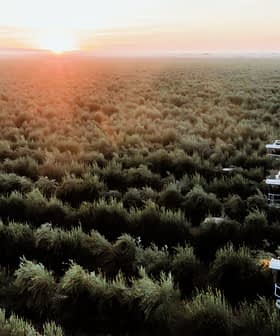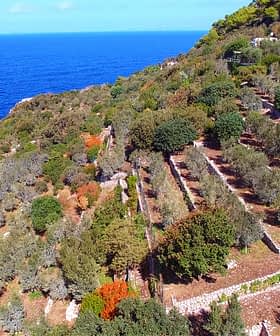Researchers Introduce Fertigation to Andalusian Olive Groves
The process has been hailed as a sustainable way for farmers to fertilize and irrigate their olive trees precisely and with recycled water.
 Olive Oil Times
Olive Oil TimesA research team from the University of Córdoba in Andalusia has achieved precision fertigation of olive groves using reclaimed water.
Fertigation is a process where nutrients are applied alongside irrigation water, which advocates argue has dual benefits: saving on fertilizer costs – specifically, nitrogen – and giving a second life to wastewater.
See Also:Research NewsThe researchers said that using recycled water to irrigate crops is a sustainable irrigation approach and should be hailed as a breakthrough for conserving an increasingly precious natural resource in Spain and around the world. Globally, agriculture accounts for about 70 percent of the freshwater used.
Among the challenges faced by the researchers to achieve this goal was to determine the amount of nutrients and water that the olive trees required, which varies depending on location and time of year.
To resolve this challenge, the researchers analyzed the space-time variations of nitrogen, an essential nutrient in olive tree growth, in the irrigation distribution network.
Depending on the tree’s location on the network, water and nutrients had to be sent at different times and in varying amounts.
To help farmers simplify what is otherwise a complicated process, the researchers created a mobile application, Reutivar, through which farmers can receive a series of precise recommendations about when and how much water to use.








